Ritalin: An In-Depth Guide
Ritalin is one of the most well-known medications prescribed for the treatment of Attention Deficit Hyperactivity Disorder (ADHD) and narcolepsy. As a stimulant, Ritalin helps individuals manage their symptoms by improving focus, reducing hyperactivity, and enhancing overall attention span. This comprehensive guide covers the uses, benefits, potential side effects, and other essential details about Ritalin, including where to buy Ritalin in the USA, buy Ritalin in Europe, buy Ritalin in Australia, and buy Ritalin in the UK.
What is Ritalin?
Ritalin is the brand name for the drug methylphenidate, a central nervous system (CNS) stimulant. It is commonly prescribed to individuals diagnosed with ADHD and narcolepsy. Ritalin works by increasing the levels of dopamine and norepinephrine in the brain, neurotransmitters that are critical for regulating attention, focus, and impulse control.
Ritalin is a central nervous system stimulant. Methylphenidate affects chemicals in the brain and nerves that contribute to hyperactivity and impulse control.
Ritalin is used to treat attention deficit disorder (ADD), attention deficit hyperactivity disorder (ADHD), and narcolepsy.
Therefore, Ritalin should be used as a part of a total treatment program for ADHD that may include counseling or other therapies.
Ritalin vs. Other Stimulants
While Ritalin is one of several stimulant medications used to treat ADHD, it is distinct in its formulation and effects compared to other medications like Adderall, which contains a mix of amphetamine salts. Though both types of medications act on similar neurotransmitter pathways, methylphenidate (Ritalin) and amphetamines (like Adderall) have slightly different mechanisms and side effects.
Medical Uses of Ritalin
Ritalin is primarily prescribed to treat ADHD and narcolepsy, two conditions that affect millions worldwide. It helps individuals by improving their ability to focus and manage hyperactive behavior.
1. ADHD (Attention Deficit Hyperactivity Disorder)
ADHD is a neurological condition characterized by symptoms like inattention, impulsivity, and hyperactivity. People with ADHD often find it challenging to stay focused, organized, and calm in various situations. These symptoms can significantly affect an individual’s academic performance, professional life, and social interactions.
Ritalin works effectively in improving attention span, reducing impulsive behavior, and managing hyperactivity. For children and adults with ADHD, Ritalin helps them stay on task and engage more effectively in daily activities.
2. Narcolepsy
Narcolepsy is a sleep disorder that causes excessive daytime sleepiness and sudden episodes of sleep. Individuals with narcolepsy may experience difficulty staying awake during the day and may even have uncontrollable sleep attacks. Ritalin is prescribed to manage this condition by increasing wakefulness and alertness throughout the day.
How Does Ritalin Work?
Ritalin works by affecting the brain’s dopamine and norepinephrine systems. These neurotransmitters play an essential role in attention, focus, and behavior regulation. By stimulating the release of dopamine and norepinephrine, Ritalin helps individuals with ADHD and narcolepsy maintain a more stable and focused mental state.
Dopamine and Norepinephrine: The Key Players
- Dopamine: Often referred to as the “feel-good” neurotransmitter, dopamine is involved in motivation, reward, and focus. Individuals with ADHD often have lower dopamine levels in the brain, leading to difficulties with attention and motivation. Ritalin helps to boost dopamine levels, which improves concentration and reduces distractibility.
- Norepinephrine: Norepinephrine is another neurotransmitter that influences attention and alertness. It helps the brain stay alert and focused, especially in high-stakes or challenging situations. By increasing norepinephrine levels, Ritalin aids in maintaining focus and reducing impulsivity.
Benefits of Ritalin
Ritalin offers numerous benefits, particularly for individuals with ADHD or narcolepsy. By regulating neurotransmitters in the brain, Ritalin improves focus, alertness, and overall cognitive function.
1. Improved Focus and Attention
One of the primary benefits of Ritalin is its ability to enhance focus and attention. Individuals with ADHD often struggle to maintain concentration on tasks, which can affect academic performance, work, and daily activities. By increasing dopamine and norepinephrine activity, Ritalin helps these individuals focus for longer periods.
2. Increased Cognitive Function
Beyond attention, Ritalin also enhances cognitive functions such as problem-solving, memory, and decision-making. This improvement in cognitive abilities helps individuals with ADHD perform better in various cognitive tasks, such as learning, working, and socializing.
3. Reduced Hyperactivity and Impulsivity
Ritalin has a calming effect on individuals with ADHD, helping reduce hyperactive behavior and impulsive actions. This is particularly beneficial in managing challenging behaviors in children and adults, allowing them to engage more effectively in social situations, school, or the workplace.
4. Increased Alertness
For individuals with narcolepsy, Ritalin helps increase wakefulness and alertness, reducing the frequency of daytime sleepiness and sleep attacks. This enables individuals to maintain a more regular daily schedule and be more productive.
Ritalin Dosage
2.1 Pretreatment Screening
Prior to treating patients with Ritalin, assess:
- •for the presence of cardiac disease (i.e., perform a careful history, family history of sudden death or ventricular arrhythmia, and physical exam).
- •the family history and clinically evaluate patients for motor or verbal tics or Tourette’s syndrome before initiating Ritalin.
2.2 General Dosing Information
Pediatric Patients 6 years and Older: Start with 5 mg orally twice daily (before breakfast and lunch). Increase dosage gradually, in increments of 5-to 10-mg weekly. Daily dosage above 60 mg is not recommended.
Adults: Average dosage is 20 to 30 mg daily. Administer orally in divided doses 2 or 3 times daily, preferably 30 to 45 minutes before meals. Maximum total daily dosage is 60 mg. Patients who are unable to sleep if medication is taken late in the day should take the last dose before 6 p.m.
2.3 Dosage Reduction and Discontinuation
If paradoxical worsening of symptoms or other adverse reactions occur, reduce the dosage, or, if necessary, discontinue Ritalin. If improvement is not observed after appropriate dosage adjustment over a one-month period, the drug should be discontinued.
Side Effects of Ritalin
While Ritalin is effective for managing ADHD and narcolepsy symptoms, it also comes with potential side effects. It is crucial for individuals to weigh the benefits and risks of the medication in consultation with a healthcare provider.
1. Common Side Effects
- Insomnia: Ritalin may cause sleep disturbances, especially if taken later in the day. It’s important to take the medication early in the day to minimize this effect.
- Appetite Loss: One common side effect of Ritalin is a decrease in appetite, which can lead to weight loss if not monitored.
- Nervousness and Anxiety: Some individuals may experience heightened anxiety or nervousness while on Ritalin.
- Dry Mouth: Ritalin can cause dry mouth, which may be uncomfortable for some individuals.
- Headache: Headaches are a potential side effect, particularly when starting the medication or adjusting the dose.
2. Serious Side Effects
- Heart Issues: In rare cases, Ritalin can increase heart rate and blood pressure, which may be concerning for individuals with pre-existing heart conditions. Regular monitoring by a healthcare provider is essential.
- Mood Changes: Ritalin can sometimes lead to mood swings or more serious mental health issues, such as aggression or depression.
- Dependence and Abuse: Because Ritalin is a stimulant, it has the potential for misuse and addiction, especially in individuals with a history of substance abuse.
3. Long-Term Effects
Prolonged use of Ritalin may lead to tolerance, meaning higher doses are required to achieve the same effect. Over time, some individuals may also develop dependence on the medication, making it important to follow the prescribed dosage and monitor for signs of misuse.
How should I take Ritalin?
Take Ritalin exactly as prescribed by your doctor. Follow all directions on your prescription label and read all medication guides or instruction sheets. Your doctor may occasionally change your dose.
Methylphenidate may be habit-forming. Misuse can cause addiction, overdose, or death. Keep the medication where others cannot get to it. Selling or giving away Ritalin is against the law.
Your dose needs may change if you switch to a different brand, strength, or form of this medicine. Avoid medication errors by using only the medicine your doctor prescribes.
Ritalin immediate release (IR) tablets are usually taken 2 to 3 times a day. Take Ritalin IR tablets 30 to 45 minutes before a meal.
Ritalin LA extended-release capsule are taken once daily in the morning.
You may take Ritalin LA capsules with or without food, but take them the same way each time.
Swallow the Ritalin LA extended-release capsule whole. If you cannot swallow the capsule whole, open it and mix the medicine with soft food such as applesauce, pudding or yogurt. Swallow the mixture right away without chewing.
Who Should Avoid Ritalin?
It may not be suitable for everyone. It is contraindicated for individuals who:
- Have a history of heart problems or high blood pressure.
- Have a history of substance abuse or addiction.
- Are currently taking medications like monoamine oxidase inhibitors (MAOIs).
- Are pregnant or breastfeeding, as Ritalin can pass through the placenta and into breast milk.
Individuals with certain mental health conditions, such as anxiety disorders or psychosis, may also need to avoid Ritalin or use it with caution.
How to Buy Ritalin
Buy Ritalin in the USA
In the United States, Ritalin is classified as a Schedule II controlled substance, meaning it is available only with a prescription. To buy Ritalin in the USA, individuals must first consult with a healthcare provider who can evaluate their condition and prescribe the medication if necessary. After obtaining a prescription, Ritalin can be purchased at most pharmacies.
If you’re looking to buy Ritalin in the USA online, be cautious of fraudulent websites. Always use licensed pharmacies to ensure the medication’s authenticity and safety. You can refer to the FDA’s website for more information about prescription medications.
Buy Ritalin in Europe
It is also available in Europe with a prescription, but regulations around its availability may vary by country. To buy Ritalin in Europe, a valid prescription from a healthcare provider is required. As with other medications, it’s essential to purchase Ritalin through a reputable pharmacy to avoid counterfeit products. You can check the European Medicines Agency for more information about the regulation of medications in the EU.
In some European countries, alternative ADHD medications may be prescribed if Ritalin is not available or suitable. For more details on obtaining Ritalin in Europe, visit national health authorities or trusted online pharmacies.
Buy Ritalin in Australia
In Australia, Ritalin is available with a prescription from a licensed healthcare provider. It is classified as a Schedule 8 controlled substance, which means it can only be obtained through a prescription. To buy Ritalin in Australia, you will need to first consult with a healthcare provider who can assess your condition and prescribe the medication if necessary. Be sure to purchase Ritalin from reputable pharmacies to ensure the quality and safety of the medication.
Buy Ritalin in the UK
It is also prescribed in the UK for ADHD and narcolepsy. As with other countries, you must have a valid prescription to buy Ritalin in the UK. You can obtain it from licensed pharmacies, both in-person and online. When purchasing Ritalin online, ensure that the pharmacy is regulated and legitimate to avoid counterfeit or unsafe products. Visit the UK National Health Service (NHS) website for more information on how Ritalin is prescribed in the UK.
Warnings
Ritalin may be habit-forming. Tell your doctor if you have a history of drug or alcohol addiction. Keep the medication where others cannot get to it.
Misuse of Ritalin can cause addiction, overdose, or death. Tell your doctor if you have had problems with drug or alcohol abuse.
Stimulants have caused stroke, heart attack, and sudden death in people with high blood pressure, heart disease, or a heart defect.
Do not use it if you have used an MAO inhibitor in the past 14 days, such as isocarboxazid, linezolid, methylene blue injection, phenelzine, rasagiline, selegiline, or tranylcypromine.
It may cause new or worsening psychosis (unusual thoughts or behavior), especially if you have a history of depression, mental illness, or bipolar disorder.
You may have blood circulation problems that can cause numbness, pain, or discoloration in your fingers or toes.
Call your doctor right away if you have: signs of heart problems – chest pain, feeling light-headed or short of breath; signs of psychosis – paranoia, aggression, new behavior problems, seeing or hearing things that are not real; signs of circulation problems – unexplained wounds on your fingers or toes.
Before taking this medicine
You should not use it if you are allergic to methylphenidate, or if you have.
- glaucoma;
- severe high blood pressure or a heart problem;
- overactive thyroid;
- a personal or family history of tics (muscle twitches) or Tourette’s syndrome; or
- severe anxiety, tension, or agitation (stimulant medicine can make these symptoms worse).
Stimulants have caused stroke, heart attack, and sudden death in certain people. Tell your doctor if you have:
- heart problems or a congenital heart defect;
- high blood pressure; or
- a family history of heart disease or sudden death.
Do not use it if you have used an MAO inhibitor in the past 14 days. A dangerous drug interaction could occur. MAO inhibitors include isocarboxazid, linezolid, methylene blue injection, phenelzine, and tranylcypromine.
Conclusion
Ritalin is an effective medication for managing ADHD and narcolepsy, providing significant improvements in focus, alertness, and cognitive function. While it offers many benefits, it is important to be aware of the potential side effects and risks, including heart issues and the potential for misuse.
Whether you’re looking to buy Ritalin in the USA, buy Ritalin in Europe, buy Ritalin in Australia, or buy Ritalin in the UK, it’s crucial to follow medical guidelines and consult a healthcare provider to ensure the medication is appropriate for your needs. Always purchase Ritalin from reputable sources to ensure safety and efficacy.
| Ritalin Tablets | 5mg/100Tablets, 10mg/100Tablets, 20mg/100Tablets |
|---|
Be the first to review “Ritalin” Cancel reply
Related products
Pharmacy Medicines
Pharmacy Medicines
Pharmacy Medicines
Pharmacy Medicines
Pharmacy Medicines
Pharmacy Medicines
Pharmacy Medicines
Pharmacy Medicines

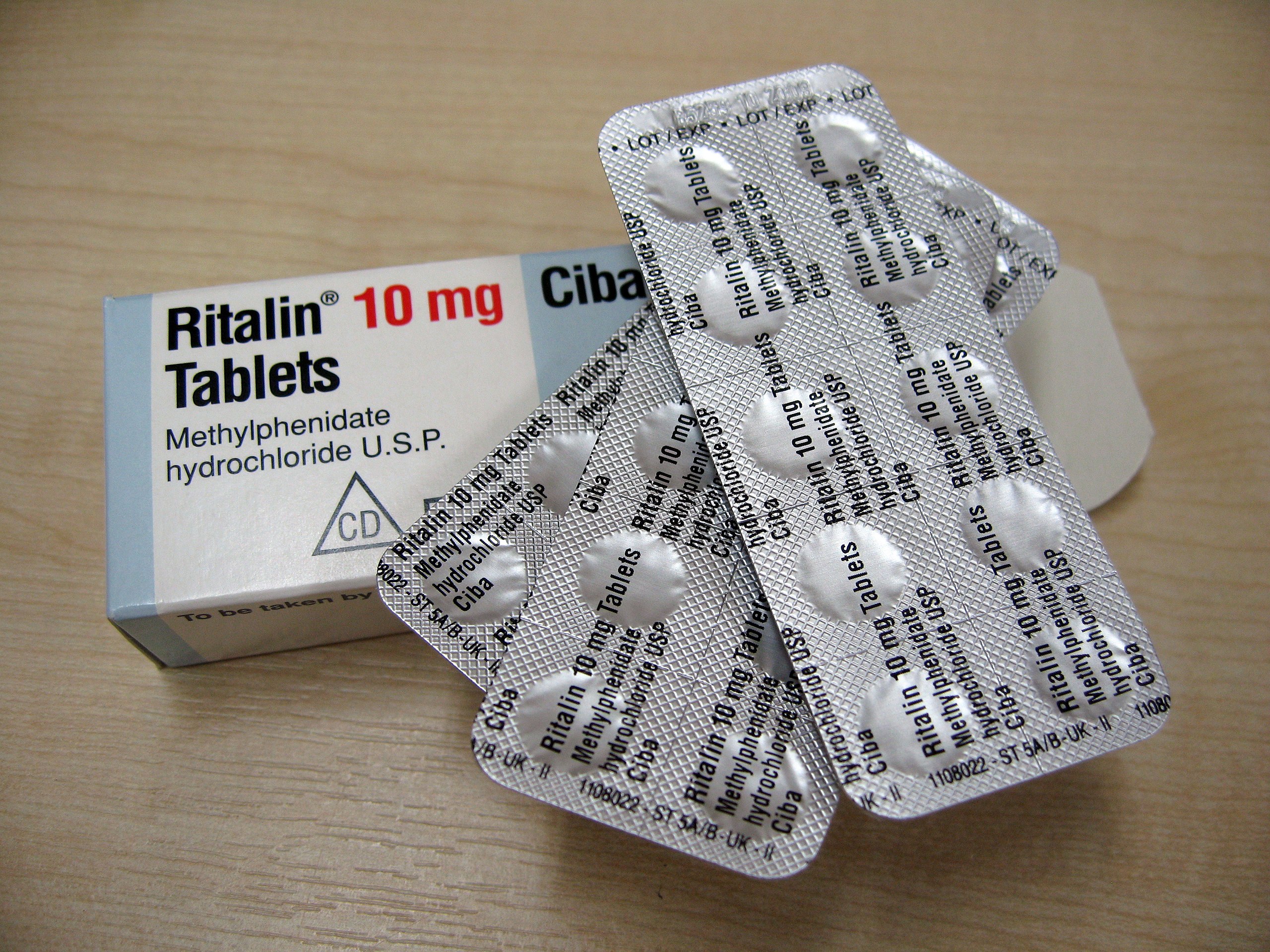
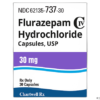
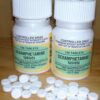
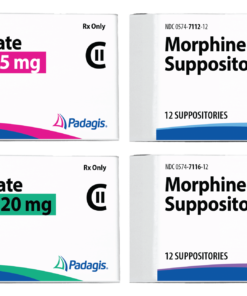


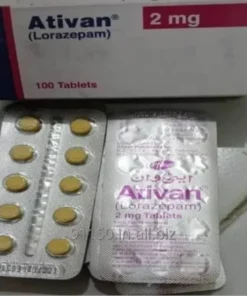
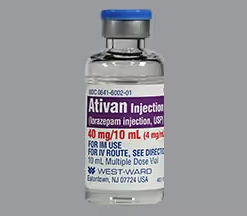
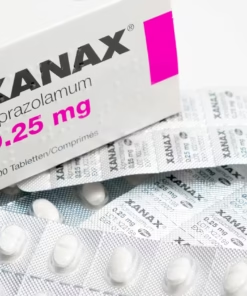
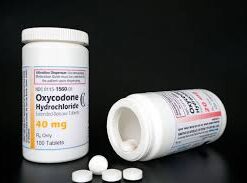
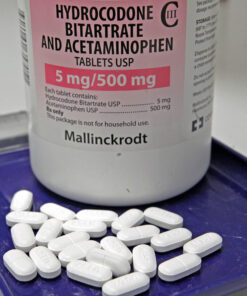
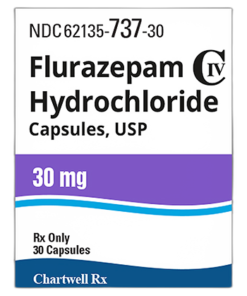
Reviews
There are no reviews yet.